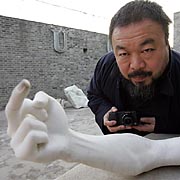
During the Duanwu festival (early June this year), the parents of my piano students offered me zongzi. They are traditional Chinese treats and most families still make these savory and sweet packets at home. Filled with sticky rice, meat or sweet bean paste, each zongzi is wrapped in lotus leaves and steamed to perfection. The other activity during this traditional holiday is the dragon boat race.
But the origin of this festival was tragic. Qu Yuan (340-278 BCE), poet and adviser to the king of Chu, was banished from the court and exiled. He committed suicide by throwing himself into the river. The common folks tried desperately to save him but to no avail. They rode their boats into the middle of the river banging gongs and drums to scare the fish. Some threw rice and meat into the water to prevent his body from being eaten.
Since Qu Yuan, many poets who held official positions had unpleasant endings. It is a strange contradiction. On the one hand, the government actively looked for the best minds by holding national examinations. On the other hand, the best minds they collected were often rejected and destroyed.
After spending over two months in jail, Chinese artist Ai Weiwei was finally released on June 22. His future is uncertain. His ability to speak his truth questionable. Now Ai stands in the long line of artists, poets, patriots and lovers. Like Qu Yuan, whose legacy is still being remembered today, Ai will go down in history long after the regimes are gone.
Photo by Tina Hager.
